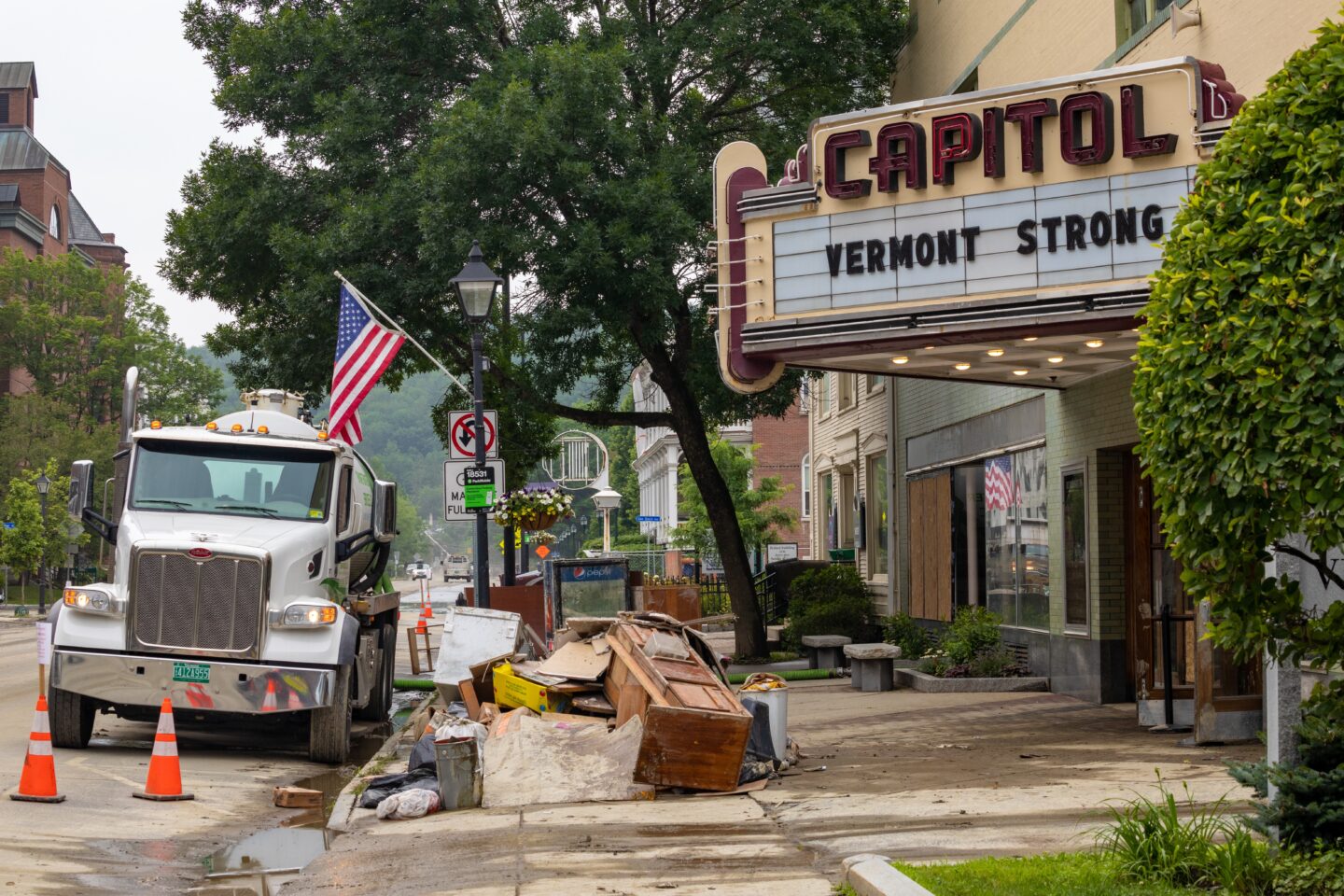
Cannabis companies affected by Vermont floods are not eligible for federal aid
As the west coast prepares for the annual summer heat wave, states on the east coast are struggling to stay afloat despite heavy rains. Devastating floods hit Monteplier, Vermont, the state capital, and caused many businesses to remain closed for cleanup and repairs. For affected cannabis companies, this means they cannot apply for federal aid.
According to VTdigger.com, Lauren Andrews, the owner of Capital Cannabis on Main Street, spent many days cleaning up her dispensary last week with the intention of reopening it on July 17. However, when she returned to her shop, she found a water leak leaving the walls and floors soaked. “We have to gut the store and start from scratch,” Andrews told the news agency.
Also on July 17, cannabis business owners received word that they were not eligible for federal disaster relief. Instead, those funds will go to other businesses impacted by last week’s historic flooding.
“Because we’re a federal agency, we have to obey federal laws,” said Carl Dombek, information officer for the Small Business Administration. “Cannabis is not legal under federal law and as such we cannot make loans to cannabis dispensaries.”
VTdigger.com also found that a cannabis company that has also received support from the FEMA Small Business Program is barred from funding. Although Vermont Gov. Phil Scott asked the US Department of Agriculture for a disaster declaration, it still did not allow affected cannabis growers to receive state crop insurance, according to an executive with the USDA Farm Service Agency.
However, if cannabis industry workers lose their jobs due to the flooding, they can still file for unemployment as it is a government service and not a federal program.
The flooding isn’t threatening to shut down cannabis businesses across the state, but they still need help, according to Cannabis Control Board Chairman James Pepper. “All of these companies are already on a knife edge because of the closed loop system,” Pepper said. “There is no socket. There is no such thing as a pressure relief valve in the cannabis industry. And when something bad like that happens, it can impact the entire industry.”
“It’s a very interdependent relationship,” Andrews said. “If one of us goes down, it hurts everyone.”
Unlike other agricultural products grown in Vermont, cannabis growers are still learning how to assess damage after destruction. “We don’t think of cannabis as an agricultural product, but as a seed and a crop that grows in the ground,” Pepper added. “This allows us to leverage some of the Department of Agriculture’s best practices to address this cannabis issue.”
Cannabis growers need to test for wastewater contamination and keep an eye on their plants for water-related issues like bud rot.
Geoffrey Pizzutillo, co-founder and executive director of the Vermont Growers Association, has worked to distribute assessment forms for cannabis businesses to understand the type of damage that has occurred across the state. “It’s too early to tell,” Pizzutillo said. “But we want to make it clear that this is the entire supply chain. Every license type is affected – not just the outdoor growers, but also retailers and manufacturers.”
US Secretary of Transportation Pete Buttigieg visited Vermont after the flooding had subsided and compared the scene to the devastation left by Hurricane Irene in 2011. “You see the urgency of making sure these communities get the help they need,” Buttigieg said while visiting members of the community. “…Our message goes out to communities large and small: the federal government is here to help provide the resources they need.”
While cannabis companies in Vermont will not benefit from federal aid, Pizzutillo and others hope to produce an accurate account of the damage so the companies can at least qualify for emergency federal funding — something that can be approved in a special session of the Legislature. “I think the best thing we can do at the Cannabis Board is collect the data and take it to the legislature,” Pepper said. “And then we will see if there is a political will to help the companies that are being hurt very badly by this.”
Vermont’s recreational cannabis law was signed into law by Governor Scott in October 2020, but sales didn’t begin until two years later. The state raised $2.6 million in just three months after it began selling recreational cannabis, reaching $24 million by May 2023.

Post a comment: